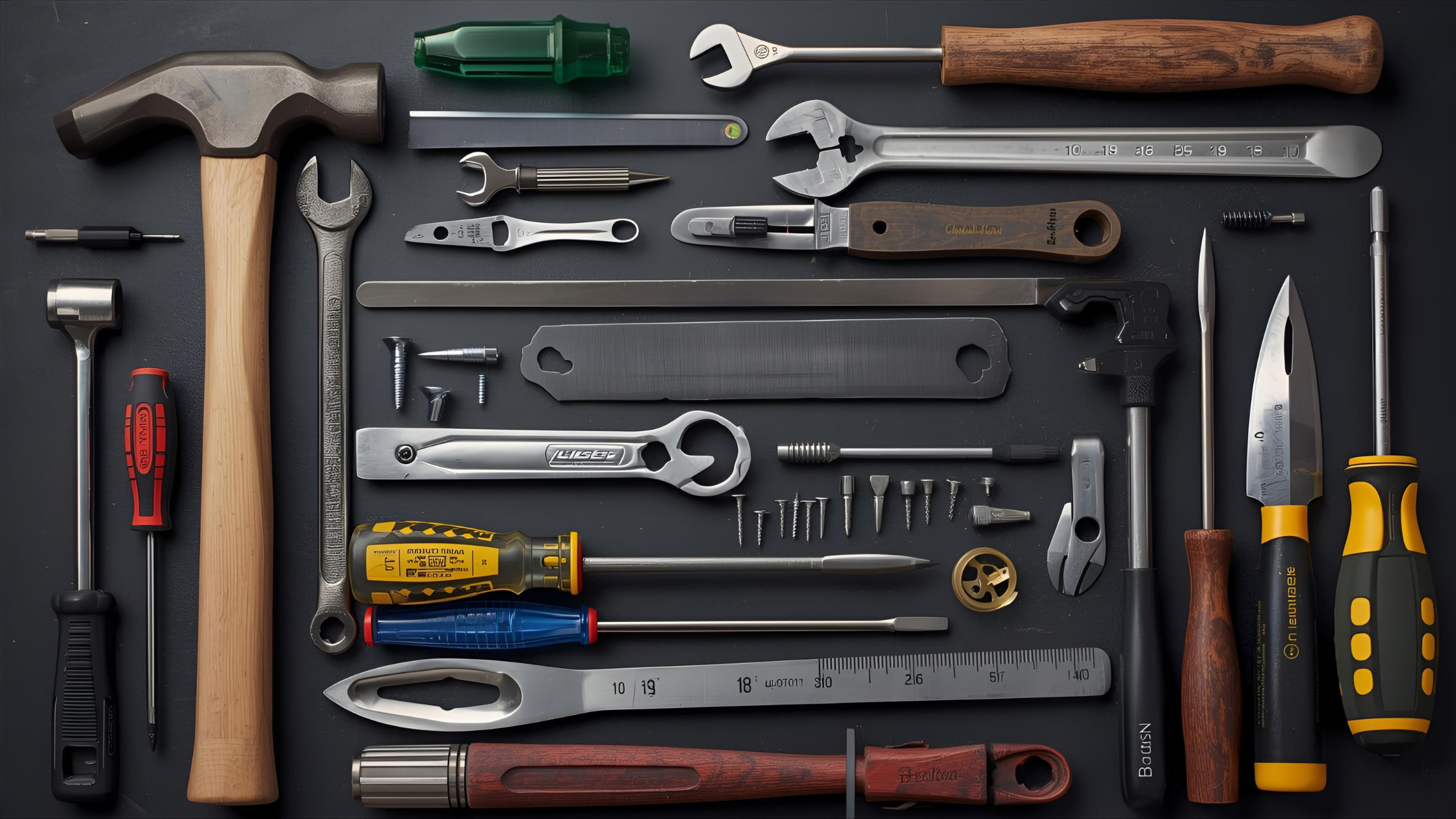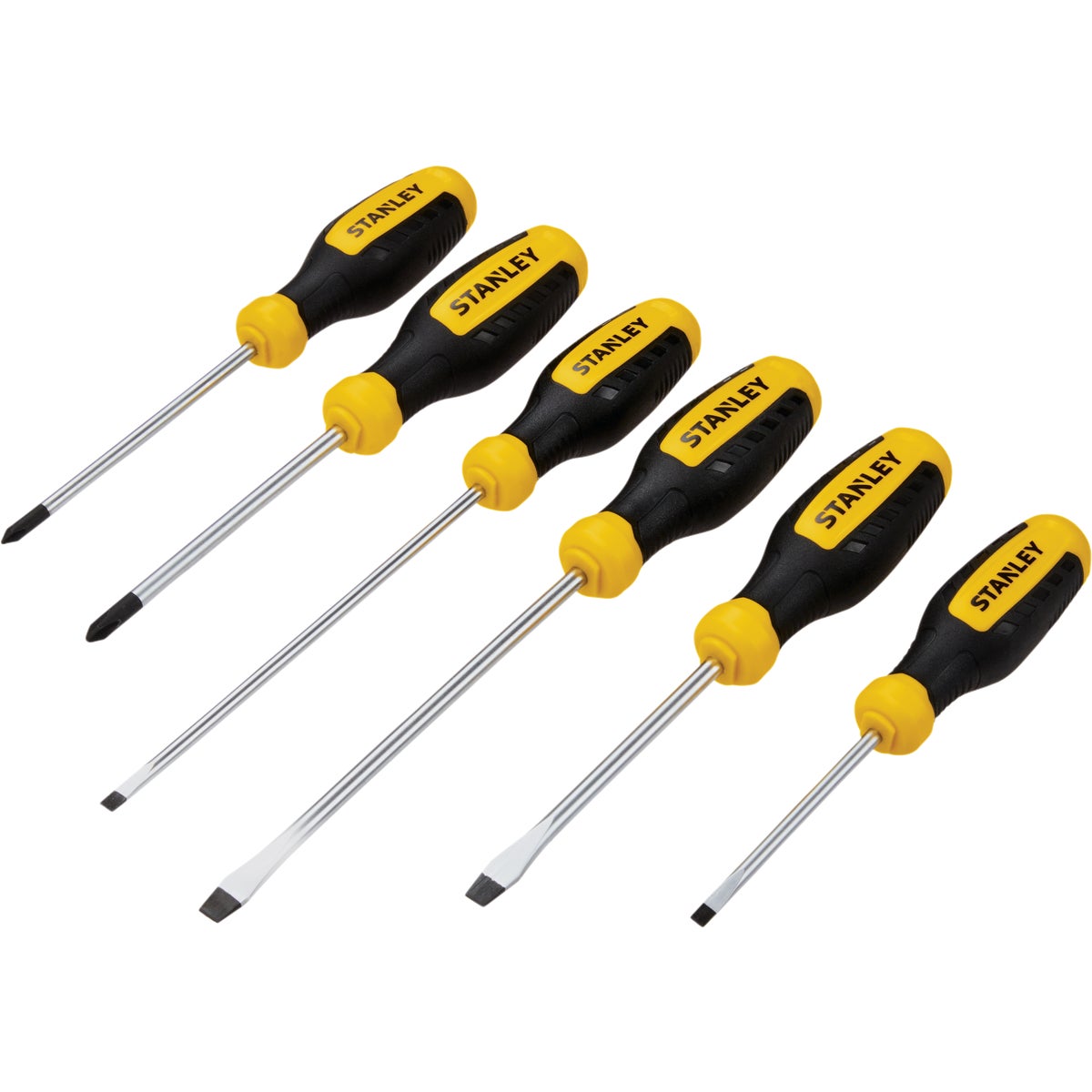.png)
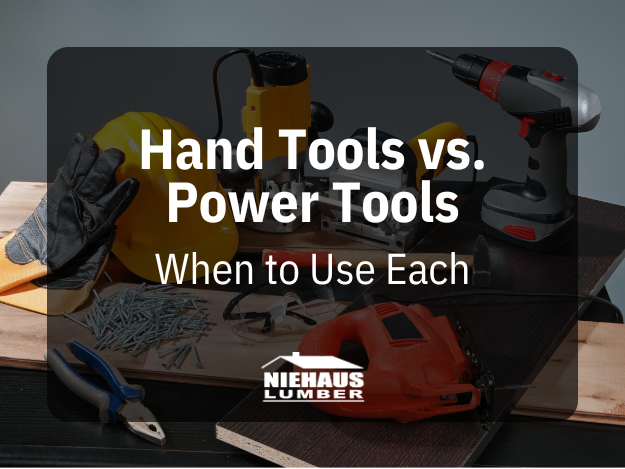
Whether you’re a DIY enthusiast, a weekend project warrior, or a professional contractor, choosing between hand tools and power tools can make a big difference in the outcome of your work. Both have their advantages, and knowing when to reach for one or the other helps you work smarter, not harder.
At Niehaus Lumber, we carry both hand tools and power tools, so you’ll always have the right option for the job.
The Case for Hand Tools
Hand tools have been around for centuries, and for good reason. They’re reliable, precise, and don’t require electricity or batteries.
Best Situations to Use Hand Tools:
-
Fine Detail Work – When precision matters, like chiseling wood joints or tightening small screws, hand tools give you more control.
-
Quick, Small Jobs – If you only need to drive a couple of nails or cut one piece of wood, grabbing a hammer or handsaw can be faster than setting up a power tool.
-
Quiet Environments – Hand tools are much quieter, which makes them a great choice if you’re working indoors or at times when noise could be disruptive.
-
Portability – No cords, no batteries, and no heavy cases. You can carry a screwdriver or utility knife anywhere.
Examples of Hand Tools You’ll Use Often:
-
Hammers
-
Screwdrivers
-
Handsaws
-
Wrenches
-
Levels
-
Chisels
The Case for Power Tools
Power tools are designed to save time and effort, especially on big or repetitive jobs. They use electricity or batteries to deliver speed and force that’s hard to match with hand tools.
Best Situations to Use Power Tools:
-
Large Projects – Cutting multiple boards, drilling dozens of holes, or sanding a big surface is much faster with power tools.
-
Heavy-Duty Work – Driving screws into hardwood or cutting through thick materials is easier with added power.
-
Time-Sensitive Jobs – When efficiency matters, power tools get the work done in a fraction of the time.
-
Consistency – Power tools deliver uniform results, especially in drilling, cutting, or fastening.
Examples of Power Tools You’ll Use Often:
-
Cordless Drills
-
Circular Saws
-
Impact Drivers
-
Power Sanders
-
Nail Guns
-
Angle Grinders
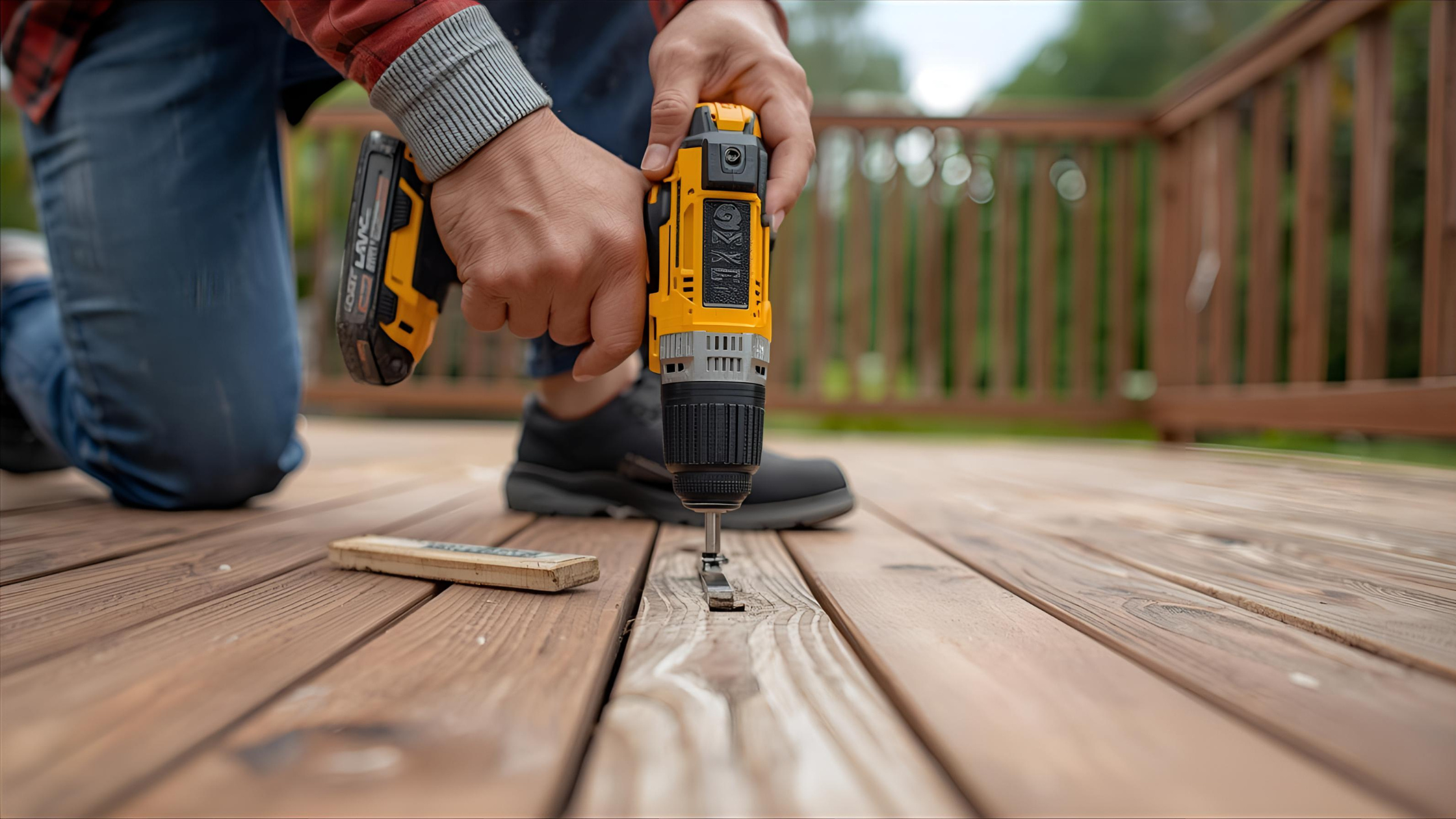
Hand Tools vs. Power Tools: Side-by-Side
| Feature | Hand Tools | Power Tools |
|---|---|---|
| Control | High precision, great for detail | Fast but may require practice to control |
| Speed | Slower, good for small tasks | Much faster, ideal for big projects |
| Cost | Generally lower | Higher upfront investment |
| Portability | Always ready, no power needed | Dependent on cords or charged batteries |
| Noise | Quiet | Can be loud |
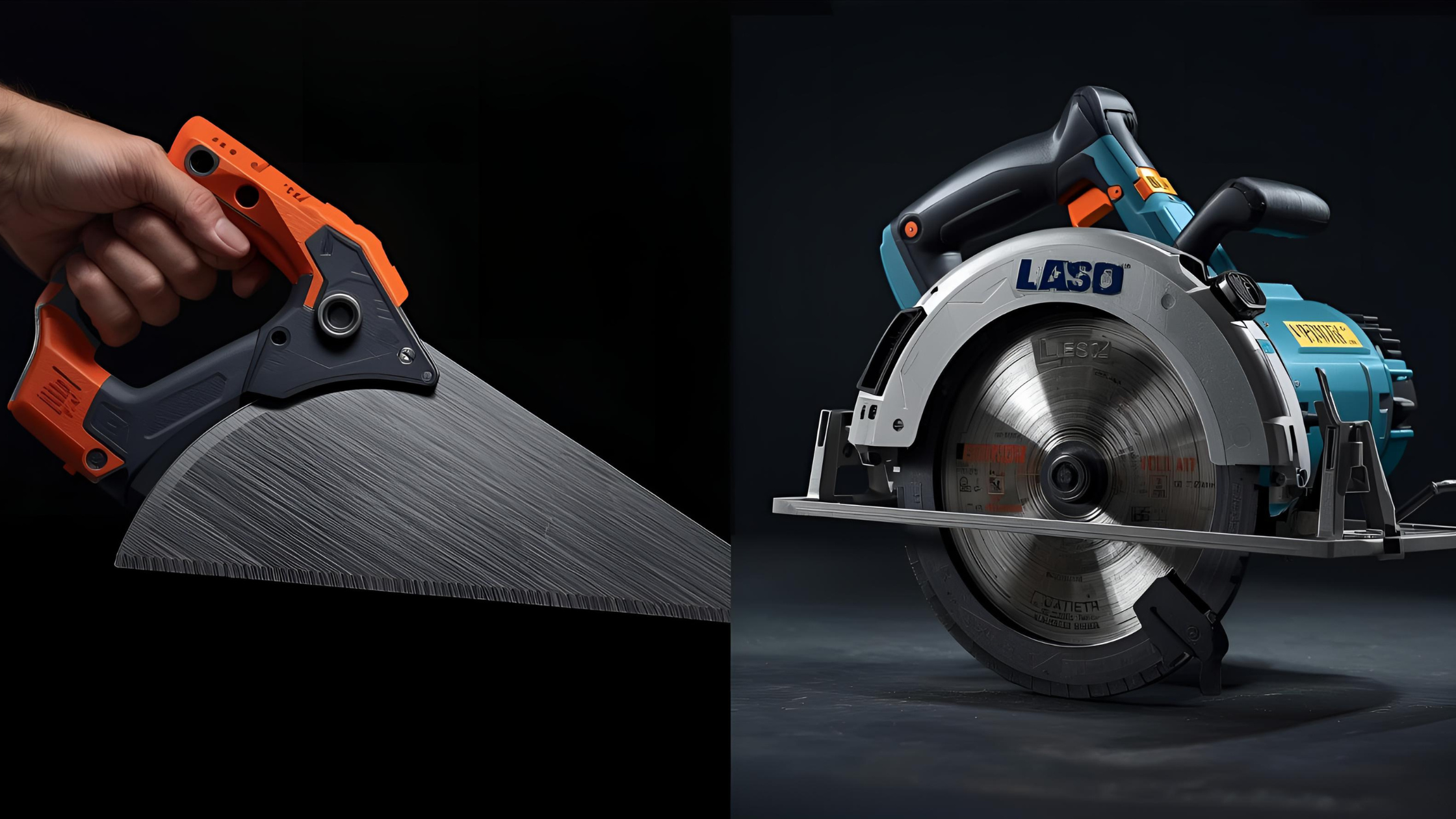
Finding the Right Balance
Most projects benefit from a mix of both. For example:
-
Building a deck – Use a circular saw for cutting boards, but keep a hammer handy for adjustments.
-
Installing cabinets – A power drill speeds up mounting, but a hand screwdriver is perfect for fine adjustments.
-
DIY furniture – Sand with a power sander for smooth surfaces, but finish with a hand plane for precision.
Think of hand tools as your go-to for detail, control, and convenience, and power tools as your solution for speed, efficiency, and heavy lifting.
Shop Tools at Niehaus Lumber
Whether you’re stocking your first toolbox or upgrading to the latest power tools, Niehaus Lumber has the selection you need. Stop by our showroom or shop online to find hammers, screwdrivers, saws, drills, sanders, and everything in between.
Shop Our Tools!
Search Our Blog
.png)

Whether you’re a DIY enthusiast, a weekend project warrior, or a professional contractor, choosing between hand tools and power tools can make a big difference in the outcome of your work. Both have their advantages, and knowing when to reach for one or the other helps you work smarter, not harder.
At Niehaus Lumber, we carry both hand tools and power tools, so you’ll always have the right option for the job.
The Case for Hand Tools
Hand tools have been around for centuries, and for good reason. They’re reliable, precise, and don’t require electricity or batteries.
Best Situations to Use Hand Tools:
-
Fine Detail Work – When precision matters, like chiseling wood joints or tightening small screws, hand tools give you more control.
-
Quick, Small Jobs – If you only need to drive a couple of nails or cut one piece of wood, grabbing a hammer or handsaw can be faster than setting up a power tool.
-
Quiet Environments – Hand tools are much quieter, which makes them a great choice if you’re working indoors or at times when noise could be disruptive.
-
Portability – No cords, no batteries, and no heavy cases. You can carry a screwdriver or utility knife anywhere.
Examples of Hand Tools You’ll Use Often:
-
Hammers
-
Screwdrivers
-
Handsaws
-
Wrenches
-
Levels
-
Chisels
The Case for Power Tools
Power tools are designed to save time and effort, especially on big or repetitive jobs. They use electricity or batteries to deliver speed and force that’s hard to match with hand tools.
Best Situations to Use Power Tools:
-
Large Projects – Cutting multiple boards, drilling dozens of holes, or sanding a big surface is much faster with power tools.
-
Heavy-Duty Work – Driving screws into hardwood or cutting through thick materials is easier with added power.
-
Time-Sensitive Jobs – When efficiency matters, power tools get the work done in a fraction of the time.
-
Consistency – Power tools deliver uniform results, especially in drilling, cutting, or fastening.
Examples of Power Tools You’ll Use Often:
-
Cordless Drills
-
Circular Saws
-
Impact Drivers
-
Power Sanders
-
Nail Guns
-
Angle Grinders

Hand Tools vs. Power Tools: Side-by-Side
| Feature | Hand Tools | Power Tools |
|---|---|---|
| Control | High precision, great for detail | Fast but may require practice to control |
| Speed | Slower, good for small tasks | Much faster, ideal for big projects |
| Cost | Generally lower | Higher upfront investment |
| Portability | Always ready, no power needed | Dependent on cords or charged batteries |
| Noise | Quiet | Can be loud |

Finding the Right Balance
Most projects benefit from a mix of both. For example:
-
Building a deck – Use a circular saw for cutting boards, but keep a hammer handy for adjustments.
-
Installing cabinets – A power drill speeds up mounting, but a hand screwdriver is perfect for fine adjustments.
-
DIY furniture – Sand with a power sander for smooth surfaces, but finish with a hand plane for precision.
Think of hand tools as your go-to for detail, control, and convenience, and power tools as your solution for speed, efficiency, and heavy lifting.
Shop Tools at Niehaus Lumber
Whether you’re stocking your first toolbox or upgrading to the latest power tools, Niehaus Lumber has the selection you need. Stop by our showroom or shop online to find hammers, screwdrivers, saws, drills, sanders, and everything in between.

